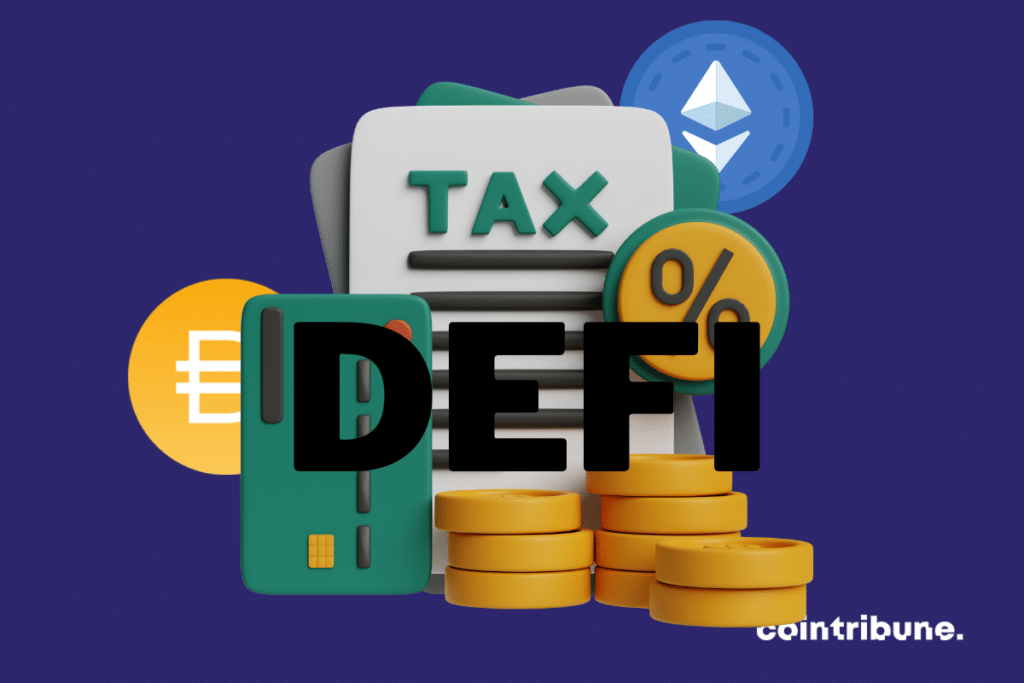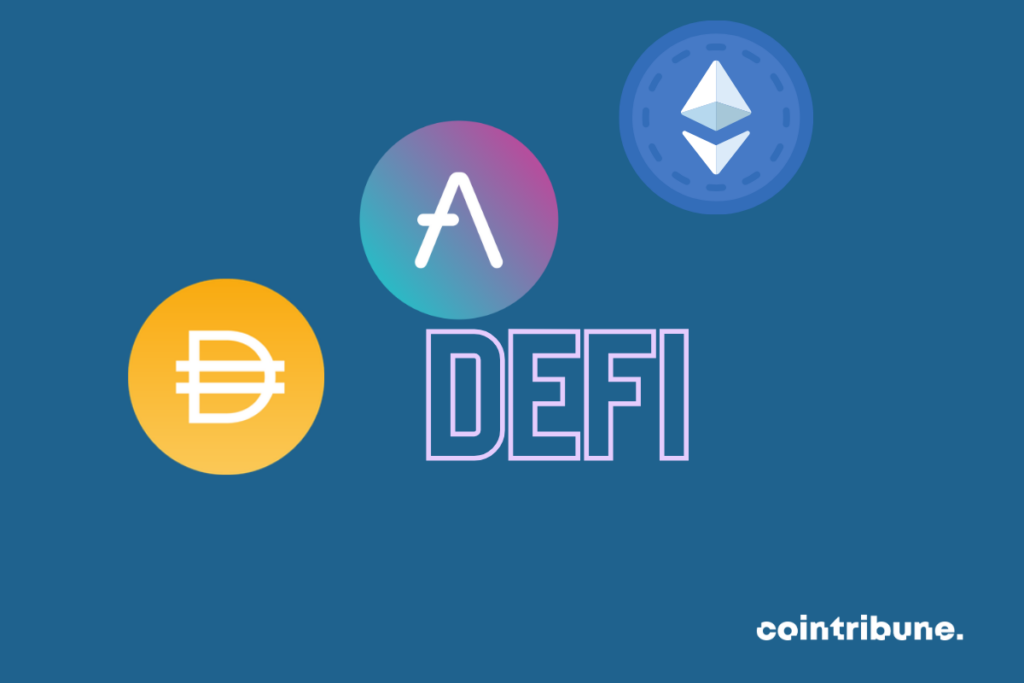DeFi and Taxation: Understanding the Stakes
Decentralized finance (DeFi) has revolutionized the investment world, providing an alternative to traditional financial systems through blockchain technology. However, this innovation comes with certain challenges, especially in the area of taxation and regulatory compliance. Users of DeFi must navigate a complex and constantly evolving tax environment while managing the risks associated with these new forms of investment. This article explores the fundamentals of DeFi, the specifics of its taxation, and the tax reporting practices that users must comply with.

The Fundamentals of Decentralized Finance
Decentralized finance or DeFi is revolutionizing the financial world by offering financial services accessible through blockchain technologies. It is characterized by its lack of intermediaries, such as banks or brokers, and is based on automated smart contracts. Users can thus lend, borrow, or engage in staking. Despite its potential for high returns, decentralized finance carries risks, particularly in terms of volatility and security.
The Specifics of DeFi Taxation
Decentralized finance has introduced a new era in investment, but it also brings its share of tax complexities. Users of DeFi must navigate a constantly evolving tax landscape, where rules and tax rates can vary significantly.
Taxes on Income and Gains in DeFi
Income generated from DeFi activities, whether through staking, farming, or trading, is subject to tax. In France, for example, these incomes are often treated as non-commercial profits or capital gains, depending on the nature of the activity. The tax rate depends on several factors, including the total amount of gains and the holding period of the assets. Users must be aware that capital gains realized upon the sale of cryptocurrencies acquired through DeFi are also taxable. This taxation can vary, requiring a thorough understanding of applicable tax laws for effective tax management.
Taxation Related to Acquisitions and Expenses in DeFi
The acquisition of digital assets within decentralized finance can have specific tax implications. For example, the purchase of tokens may be considered a taxable acquisition in certain cases, depending on local legislation. Similarly, expenses related to the purchase of these assets, such as transaction fees or costs associated with utilizing DeFi services, can influence the investor’s tax situation. DeFi users must keep detailed records of all their transactions, including acquisitions and expenses, to ensure accurate and compliant tax reporting.
Tax Management and Compliance for Businesses in DeFi
Companies engaged in decentralized finance must also navigate a complex tax environment. Tax management for these entities involves not only understanding income and gains taxes but also complying with tax regulations specific to businesses. This includes reporting digital assets as part of their balance sheet and accounting for transactions in DeFi in accordance with accounting standards. Businesses must also be attentive to applicable tax credits and deductions, which may vary based on the state and the nature of activities in DeFi. Rigorous and compliant tax management is necessary to avoid penalties and maximize tax benefits.

Tax Reporting and Compliance in DeFi
Tax reporting and compliance in the decentralized finance sector are crucial aspects that users and investors must master. With the rise of DeFi, tax authorities, especially in France, are increasingly focusing on how income generated from these activities is reported and taxed. This section discusses the importance of accurate income reporting in DeFi and provides tips for successful reporting.
The Importance of Accurate Reporting of DeFi Income
Accurate reporting of income derived from decentralized finance is essential to ensure tax compliance. Users must report all income, whether from capital gains, staking, or yield farming. In France, this income is generally subject to income tax and must be reported as non-commercial profits or capital gains, depending on the nature of the activity. Precision is critical to avoid errors that could lead to penalties or tax audits. Users should therefore ensure they fully understand and correctly apply tax requirements to their DeFi activities. This involves a thorough understanding of tax rates, available tax credits, and the different categories of income in DeFi.
Tips for Successfully Reporting Income in DeFi
To successfully report income derived from DeFi, a methodical approach is necessary. First, it is imperative to keep detailed records of all DeFi transactions, including dates, amounts, and types of transactions. This information is crucial for accurately calculating capital gains or losses. Second, it is advisable to use specialized cryptocurrency accounting tools that can help track and report transactions consistently.
Finally, given the complexity and constantly evolving nature of tax laws related to decentralized finance, it may be wise to consult tax experts. These professionals can provide personalized advice and help navigate the intricacies of cryptocurrency taxation. By following these steps, DeFi users can ensure that they meet their tax obligations and avoid potential complications with tax authorities.
Conclusion
DeFi is a rapidly growing sector that offers revolutionary investment opportunities, but it also requires heightened vigilance regarding taxation. Users must stay informed about the latest tax regulations. A clear understanding of tax issues is essential to fully benefit from the advantages of decentralized finance. By approaching this area with a thoughtful strategy and in-depth knowledge, investors can successfully navigate this dynamic and complex environment.
Maximize your Cointribune experience with our "Read to Earn" program! For every article you read, earn points and access exclusive rewards. Sign up now and start earning benefits.
The Cointribune editorial team unites its voices to address topics related to cryptocurrencies, investment, the metaverse, and NFTs, while striving to answer your questions as best as possible.
The views, thoughts, and opinions expressed in this article belong solely to the author, and should not be taken as investment advice. Do your own research before taking any investment decisions.